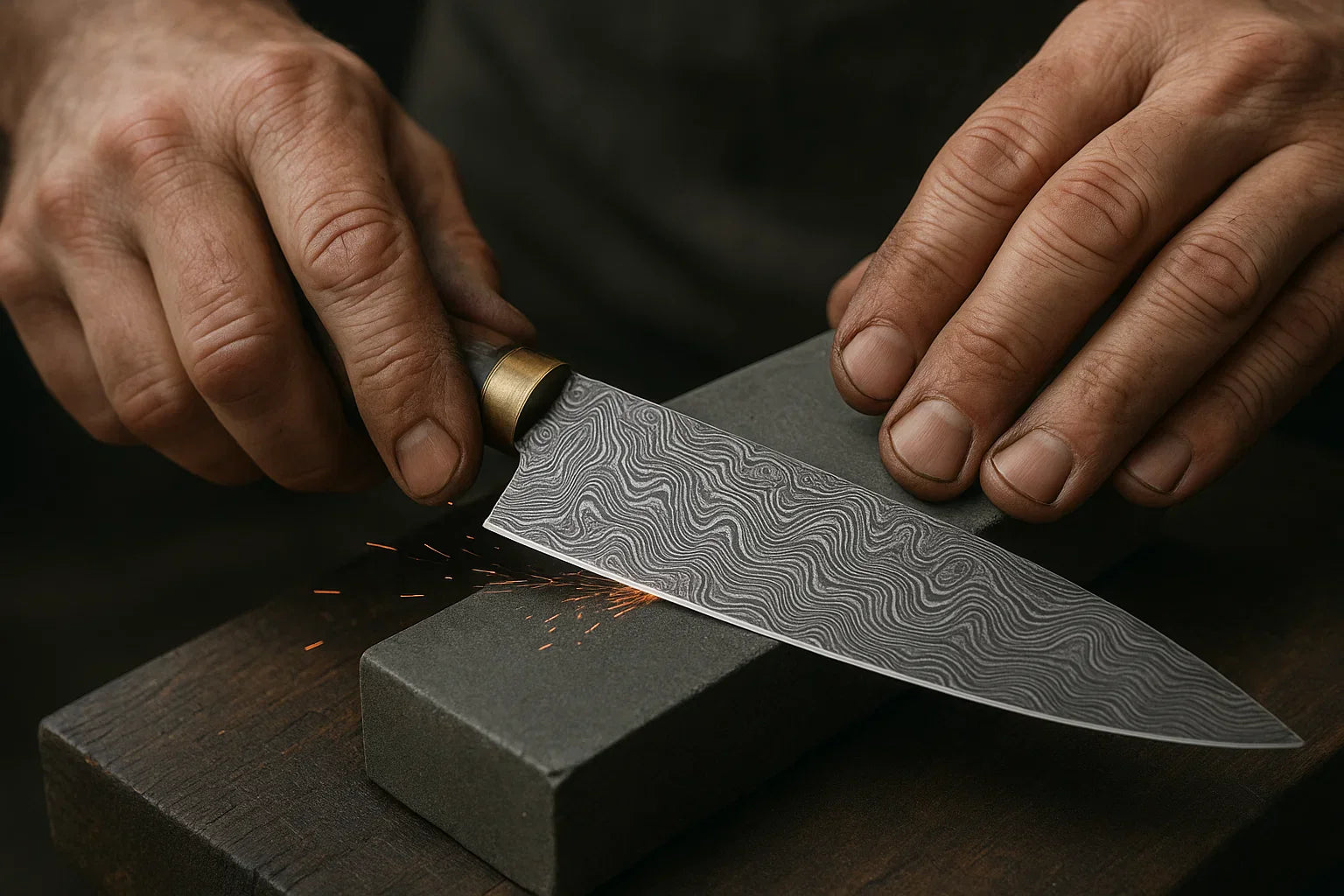Your Cart is Empty
FREE SHIPPING FOR USA

Damascus knives are known for their distinctive patterns, exceptional sharpness, and artisanal craftsmanship. But with their growing popularity, the market has also become flooded with mass-produced and low-quality versions. For both new buyers and collectors, it’s easy to get misled.
To help you make a smart, confident decision, here are the top 10 mistakes to avoid when buying a Damascus knife.
One of the most common mistakes is assuming that any blade with a wavy pattern is real Damascus steel. Many cheap knives are just laser-etched or acid-etched to look like Damascus — but they don’t have the layered structure or performance benefits.
Tip: Always check if the blade is made from forge-welded high-carbon steel layers, not just a surface pattern.
The hardness of the blade directly affects edge retention and durability. Genuine Damascus knives usually fall between 55 and 62 HRC on the Rockwell scale. If the hardness isn't listed, it's a red flag.
Look for: HRC values around 58–60 for a great balance between sharpness and toughness.
Avoid purchasing Damascus knives from generic online marketplaces or unknown drop-shippers. These platforms often list cheap, decorative pieces as “premium.”
Buy from a seller who specializes in Damascus knives and shares clear details about the steel, forging process, and testing.
Yes, Damascus knives are beautiful — but don’t pick a blade just because it looks cool. If you’re using it in the kitchen, the handle, weight, and blade shape matter just as much as the pattern.
Choose your knife based on purpose — kitchen, hunting, EDC (everyday carry), or collecting.
All Damascus steel is not the same. The quality depends on the types of steel used in layering. Some are high-carbon, others may include stainless steel.
For serious cutting performance, choose high-carbon Damascus made from reputable steels like 1095, 15N20, or VG10.
Heat treatment makes or breaks a blade. Poorly heat-treated Damascus knives may look great but won’t hold an edge or may chip easily.
A reliable seller will mention how the blade is treated — look for terms like normalized, quenched, and tempered.
“Handmade” is a powerful word, but many sellers use it loosely. Some “handmade Damascus knives” are actually factory-assembled with pre-cut blanks and machine polishing.
Look for signs of actual craftsmanship, such as hammer marks, spine filework, or a detailed forging story.
A knife is only as good as its handle. Cheap wood, plastic, or poorly fixed handles can make the knife slippery, unsafe, or uncomfortable.
Quality Damascus knives often use micarta, stabilized wood, horn, or G10, and offer a full tang construction for durability.
Reputable Damascus knife sellers back their products with clear return policies and warranties. If the store doesn’t offer these, you’re taking a risk — especially if the knife turns out to be decorative or defective.
A trustworthy knife store should stand behind the quality of their blades.
Damascus knives, especially high-carbon ones, require care. They are not stainless, which means they can rust if left wet or dirty.
Be sure you’re ready to clean, dry, and oil your blade regularly — or choose stainless Damascus if you prefer low maintenance.
Buying a Damascus knife is an investment in both form and function. Whether you're a chef, collector, or outdoor enthusiast, avoiding these mistakes will help you choose a blade that performs beautifully and lasts for years.
At Jun Knives, we hand-forge our authentic Damascus knives with high-quality materials, tested heat treatment, and genuine craftsmanship. Explore our growing collection and buy with confidence — no shortcuts, no fakes.